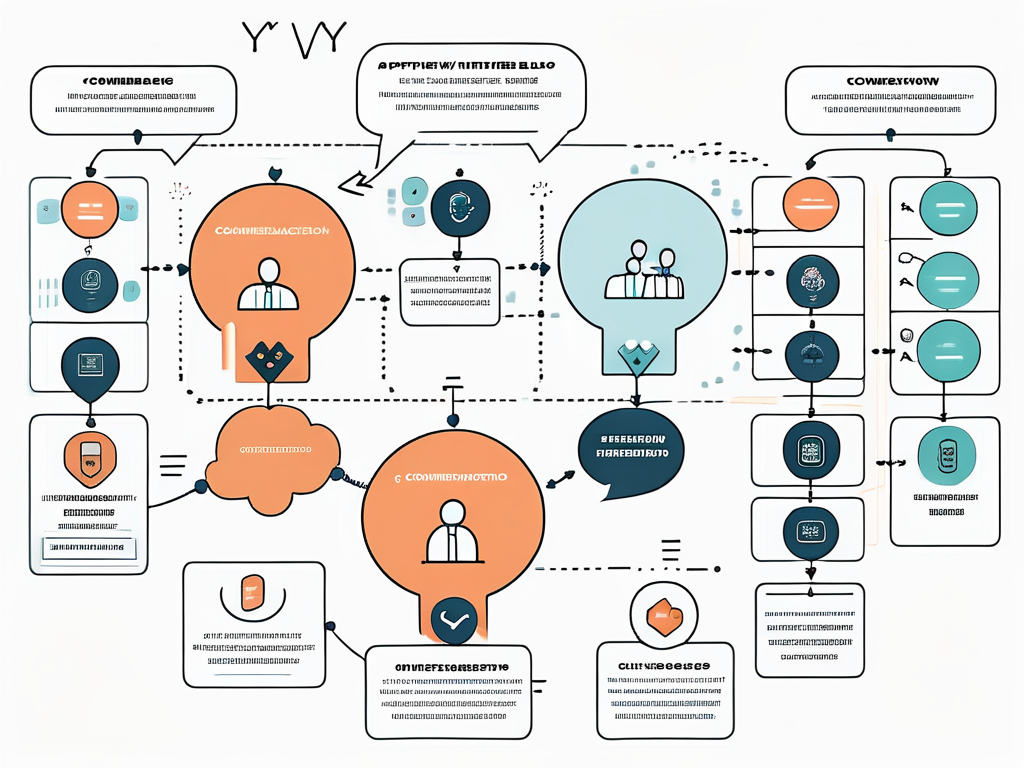Discover the most common Y Combinator interview questions and learn effective strategies to prepare for them.
rEAD MORE

The Y Combinator (YC) interview is a pivotal moment for many startup founders. It represents an opportunity to secure funding and mentorship from one of the most prestigious accelerators in the world. While it can be daunting, understanding the process and preparing effectively can make all the difference in your journey. In this article, we will explore the YC interview process, common questions, preparation tips, and how to navigate the outcomes.
The YC interview process is designed to be rigorous yet efficient, aiming to identify high-potential startups that exhibit innovation and a strong market understanding. Knowing what to expect can ease your nerves and help you convey your vision more confidently.

The primary goal of YC interviews is to evaluate founders and their ideas in a short timeframe. Unlike traditional job interviews, this format prioritizes entrepreneurs and their capacity to build and lead a company. Investors want to ascertain not only the feasibility of your business model but also the strength of your team and the clarity of your vision.
This is your chance to showcase your passion and commitment to your startup. Founders who display resilience and adaptability often leave a lasting impression, making them more likely to receive funding. Therefore, understanding the interview's intent is crucial in framing your responses. Additionally, it's important to articulate how your startup addresses a real-world problem, as YC partners are particularly interested in solutions that have the potential for significant impact and scalability.
The YC interview typically lasts about 10 minutes, a stark contrast to many other interview formats. This limited timeframe necessitates concise and potent communication. Generally, you'll meet with two or three partners from YC, who will probe into various aspects of your startup and your strategy moving forward.
The structure can vary, but it usually starts with a brief introduction to your startup, followed by a rapid-fire questioning session where interviewers target your business model, market, and team dynamics. Being prepared for a fast-paced style is essential for success. It's also beneficial to anticipate questions that may challenge your assumptions or push you to think critically about your business. For instance, you might be asked about your competition and how you plan to differentiate yourself in a crowded market. Such inquiries not only test your knowledge but also your ability to pivot and adapt your strategy based on feedback.
Moreover, the interview environment is intentionally designed to be somewhat informal, which can help to ease tension. The YC partners are not just evaluating your startup; they are also assessing your personality and how well you might fit into the YC community. They value authenticity and a genuine passion for your project, so be prepared to share personal anecdotes that illustrate your journey as a founder. This personal touch can make your pitch more relatable and memorable, setting you apart from other candidates vying for the same opportunity.
Familiarizing yourself with the types of questions you may face can bolster your confidence. Below are some common themes that are often explored during YC interviews. You'll want to articulate thoughtful responses to show you have considered these issues deeply.
Interviewers will want to know what unique problem your startup solves and why your solution is better than existing alternatives. Be prepared to articulate your value proposition clearly and effectively.
Additionally, financial viability and scalability will be scrutinized. Consider explaining how your startup can grow over time, the revenue model you plan to adopt, and why now is the right time for your idea. This preparation can help your story resonate with the interviewers. You might also want to share any preliminary traction you have achieved, such as user feedback or early sales, as these can serve as compelling evidence of the demand for your solution.
Your team is a critical factor in your startup’s potential for success. Interviewers will probe into the backgrounds of your co-founders and key team members to understand their qualifications and dynamics.
Be ready to discuss your team's strengths and how they complement one another. Interviewers often look for a blend of skills—technical expertise, market knowledge, and business acumen. Highlighting your team’s unique attributes and shared vision can underscore your overarching narrative. It may also be beneficial to share anecdotes that illustrate your team's collaborative spirit or resilience in overcoming challenges, as these stories can help paint a vivid picture of your team's culture and commitment.
Understanding your market landscape is vital for your startup’s credibility. Expect questions regarding your target market size, growth trends, and competitive landscape.
Effective responses identify the total addressable market and outline engaging statistics. You should also be prepared to discuss your customer acquisition strategies and how you plan to engage users. This level of insight demonstrates your preparedness and commitment to your business’s trajectory. Additionally, consider discussing any market research you have conducted, including surveys or focus groups, as these can provide valuable insights into consumer behavior and preferences, further solidifying your understanding of the market dynamics at play.
Preparation is the key to navigating the YC interview successfully. Planning your answers, researching your interviewers, and practicing your delivery can significantly influence your performance.
Knowing who will be interviewing you can provide insights that help tailor your responses. Understanding their backgrounds, previous investments, and interview styles can give you actionable context during the interview.
LinkedIn and other professional networks can serve as valuable resources for gathering this information. Being able to reference any shared interests or past experiences can create rapport and demonstrate your seriousness about the opportunity. Additionally, exploring their social media presence or any public talks they’ve given can reveal their current interests and investment philosophies, allowing you to align your pitch with what they value most.
Practicing your pitch is an essential step in your preparation. It helps crystallize your ideas and makes your delivery smoother. Simulating the interview environment with friends or mentors can help identify areas where you may need improvement.
Consider focusing on brevity—each segment of your pitch should be concise and impactful. Aim to cover all critical components of your startup while allowing some flexibility for the flow of conversation. This approach can enhance your confidence and spontaneity during the actual interview. Moreover, recording yourself during practice sessions can provide valuable feedback on your body language and tone, helping you refine not just what you say, but how you say it.
Every entrepreneur faces tough questions. Whether it’s about the risks of your business model, challenges in scalability, or the potential weaknesses in your team, anticipating these questions can set you apart.
When formulating your responses, ensure you’re honest and constructive. Acknowledging weaknesses while demonstrating a clear plan for overcoming them can present you as a self-aware and proactive founder, traits that investors highly value. Furthermore, consider preparing a few questions of your own to ask the interviewers. This not only shows your engagement and enthusiasm but also gives you a chance to assess whether YC is the right fit for your startup. Thoughtful questions can include inquiries about their experiences with similar startups or their vision for the future of your industry, helping you gauge their perspective and potentially guiding your strategic decisions moving forward.
Acing your YC interview requires more than just good responses. It’s also about effective communication and showcasing your passion for your project. Here are several strategies to employ on the day of your interview.

Clear communication is of paramount importance in the YC interview. Given the limited time frame, ensure that every word counts. Use simple language and avoid jargon that may obscure your message.
Practice articulating your thoughts effectively allows for easier digestion by your interviewers. Structure your responses with a clear beginning, middle, and end to enhance overall coherence. Additionally, consider using analogies or metaphors to clarify complex ideas. This technique can help bridge the gap between your vision and the interviewers' understanding, making your points more relatable and memorable.
Investors want to see your dedication to your startup. Passion can be contagious; if you’re excited about your venture, it can resonate with your interviewers.
Be sure to express why you are personally invested in your startup's mission. Sharing introspective stories about your journey can humanize your pitch and leave a memorable impression. Furthermore, consider discussing the challenges you’ve faced and how they have shaped your resolve. This not only highlights your perseverance but also demonstrates your ability to navigate adversity, a quality that investors highly value.
Your depth of knowledge can set you apart from other candidates. Demonstrating extensive understanding of your industry and being able to engage in intelligent discussions can instill confidence in your interviewers.
Stay updated with industry trends and have data-driven insights ready to address questions about market shifts, competitive landscapes, and customer preferences. This preparation underscores your commitment to being a thought leader in your space. Additionally, consider preparing a few insightful questions to ask your interviewers. This not only shows your engagement but also allows you to gauge their interest and perspectives, fostering a more dynamic conversation. Engaging them in dialogue can transform the interview from a one-sided pitch into a collaborative discussion, which is often more appealing to investors.
Regardless of the outcome, it's essential to know how to move forward once the interview concludes. Here are strategies for handling various scenarios after your YC interview.

Congratulations! Getting accepted into Y Combinator is a significant achievement and a validation of your hard work and vision. Prepare to engage with a wealth of resources from YC that can accelerate your startup’s growth.
Take full advantage of mentorship opportunities and networking to gather support and feedback, which can be invaluable as you refine your business strategy during the program. Additionally, consider setting specific goals for what you want to achieve during your time in YC. Whether it’s perfecting your pitch, expanding your user base, or securing funding, having clear objectives will help you stay focused and make the most of your experience.
Moreover, immerse yourself in the community of fellow founders. Building relationships with other entrepreneurs can lead to collaborations, partnerships, and even lifelong friendships. Attend all the events, workshops, and networking sessions available to you; these interactions can spark new ideas and provide insights that are crucial for your startup's success.
Receiving a rejection can be disheartening, but it’s essential to view it as a learning opportunity. Reach out to your interviewers for feedback on your proposal and presentation style. Understanding where improvements can be made is crucial for your future endeavors.
Many successful founders have faced rejection before eventually finding success. Keep iterating on your idea and refining your approach; persistence is key in the startup world. Use this time to conduct thorough market research and validate your concept further. Engaging with potential customers can provide insights that may not have been clear during the interview process, helping you to pivot or enhance your offering based on real-world feedback.
Additionally, consider joining local startup meetups or online communities. Surrounding yourself with like-minded individuals can foster a support system that encourages you to keep pushing forward. Sharing your experiences and learning from others can provide new perspectives and strategies that could be instrumental in your next application.
When asked to consider reapplying, take this as an opportunity to revisit and strengthen your business concept and presentation. The request often indicates that the interviewers see potential in your startup but may have questions about specific aspects.
Utilize the time until your next application to address any weaknesses pointed out during your first interview. Focus on gaining traction, refining your business model, and possibly even seeking out additional advice from mentors or peers in your network. Consider conducting a SWOT analysis (Strengths, Weaknesses, Opportunities, Threats) to gain a clearer understanding of where your startup stands and how you can leverage your strengths while mitigating any weaknesses.
Furthermore, take the opportunity to document your progress and any milestones you achieve before reapplying. This could include user growth, revenue increases, or successful partnerships. Presenting tangible evidence of your startup's evolution can significantly strengthen your application and demonstrate your commitment to continuous improvement.
Being audited is comparable to being struck by lightning. You don't want to practice pole vaulting in a thunderstorm just because it's unlikely. Making sure your books are accurate and your taxes are filed on time is one of the best ways to keep your head down during tax season. Check out Vincere's take on tax season!

This post is just for informational purposes and is not meant to be legal, business, or tax advice. Regarding the matters discussed in this post, each individual should consult his or her own attorney, business advisor, or tax advisor. Vincere accepts no responsibility for actions taken in reliance on the information contained in this document.
Copyright © 2025 Vincere Tax| All Rights Reserved
Privacy Policy